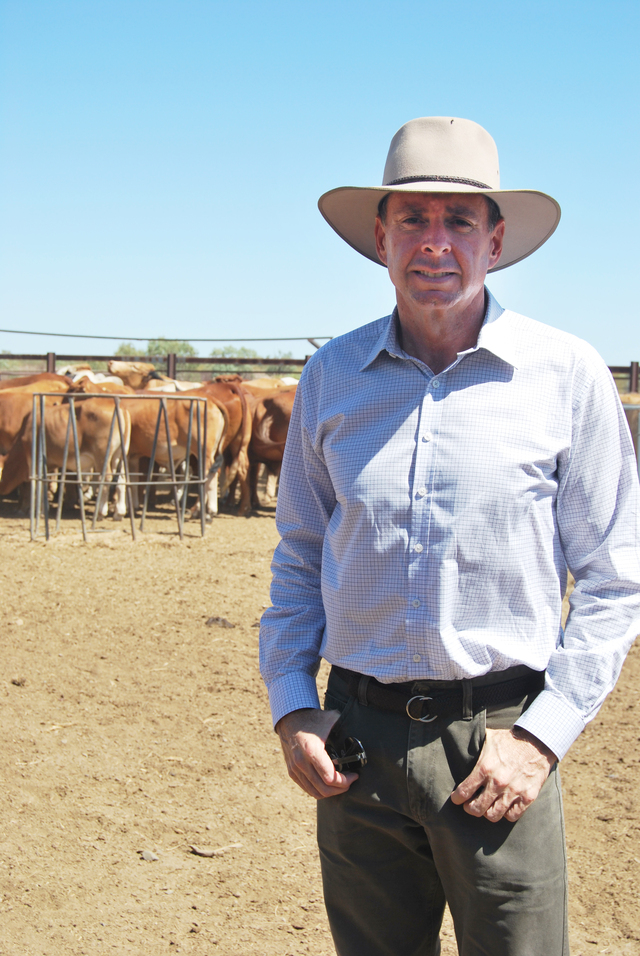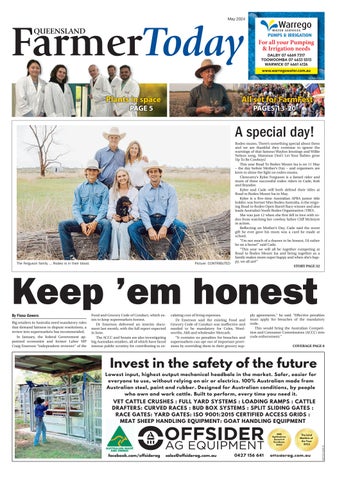High input costs and soft commodity prices have dented the confidence of Queensland farmers, Rabobank says.
Queensland, however, was one of two states where seasonal conditions were found satisfactory in its Rural Confidence Survey, with the jurisdiction generally enjoying better-than-average to average rainfall over autumn.
And, although more producers here have a negative outlook, Queensland farmer confidence levels remained among the highest in the country.
In all, 39 per cent of respondents nominated concerns about rising input costs, while 28pc were worried about lower commodity prices.
Meanwhile, improving commodity prices and overseas markets/economies were seen as positives for the agricultural economy by 28pc and 22pc respectively.
Rabobank regional manager for North Queensland and the Northern Territory Trent McIndoe said high input costs and commodity price uncertainty were “taking the shine off”.
“Most parts of Queensland are experiencing a good season – but, as always, there are some dry areas and people who have missed out on rain,” Mr McIndoe said.
“It’s the subdued cattle market that is a major cause for concern for many Queensland producers.
“And the current interest rate environment is also underpinning a level of concern – while it was not one of the major factors highlighted in the survey results, it is certainly an underlying reason.”
For the state’s beef producers, Mr McIndoe said the survey found they held concerns around soft cattle prices and the prospect of dry seasonal conditions returning.
“While cattle prices saw a lift earlier this year, there is still room for improvement,” he said.
“We are in a situation where the current absence of any strong demand in the cattle market – along with a higher herd inventory, with no real liquidation or rebuilding urgency in northern Australia – means cattle prices are more exposed to changes in producer sentiment.
“And producers are confused by the disconnect between the US beef market and the Australian market – it defies traditional logic.
“The major drivers that generally push the Australian beef market – like the season and the US market – are not having the
expected impact.
“It is hoped that global beef demand, led by the US market, will start to have a stronger influence on the Australian cattle market, providing upside to cattle prices in the second half of the year.”
Queensland grain sector confidence also eased this quarter
The majority of the state’s grain growers are anticipating agricultural economic conditions will remain the same or decline in the year ahead, the survey found.
Mr McIndoe said, overall, grain growers in the state were benefiting from positive seasonal conditions.
“Good rainfall through summer has set grain growers well for the winter cropping season, with full sub-soil moisture levels. “Queensland growers’ winter cropping intentions have been bolstered by summer and early autumn rainfall, which was
above the historical mean,” he said.
“The bank is expecting Queensland’s crop planting to show the biggest year-on-year area increase in the country – up 31.7pc to 1.475 million hectares.
And Queensland’s wheat area is on track to be the largest on record in the state, with the pulse area to increase 17pc.”
This quarter, the majority of Queensland cotton growers (61pc) expect agribusiness conditions to remain unchanged.
“Many cotton growers in southern Queensland were impacted by late summer storms that saw crop yields downgraded,” Mr McIndoe said.
“While irrigated cotton growers in the Emerald region will be buoyed by the knowledge they are going into the season
ahead with full water allocations.”
Mr McIndoe said the agricultural sector was moving into a period of consolidation for the property market, “moving on from the high supply and demand for property seen in recent years”.
“And producers are considering higher interest rates and taking into account the forecasts for further interest rate rises in the months ahead,” he said.
It is important to note, Mr McIndoe said, that good properties were still selling and selling well – there is just not the prolific number of transactions at present.
Fast Facts
■ After rallying last quarter, Queensland rural confidence slips.
■ High input costs and soft commodity prices key concerns.
■ Investment intentions remain stable.









